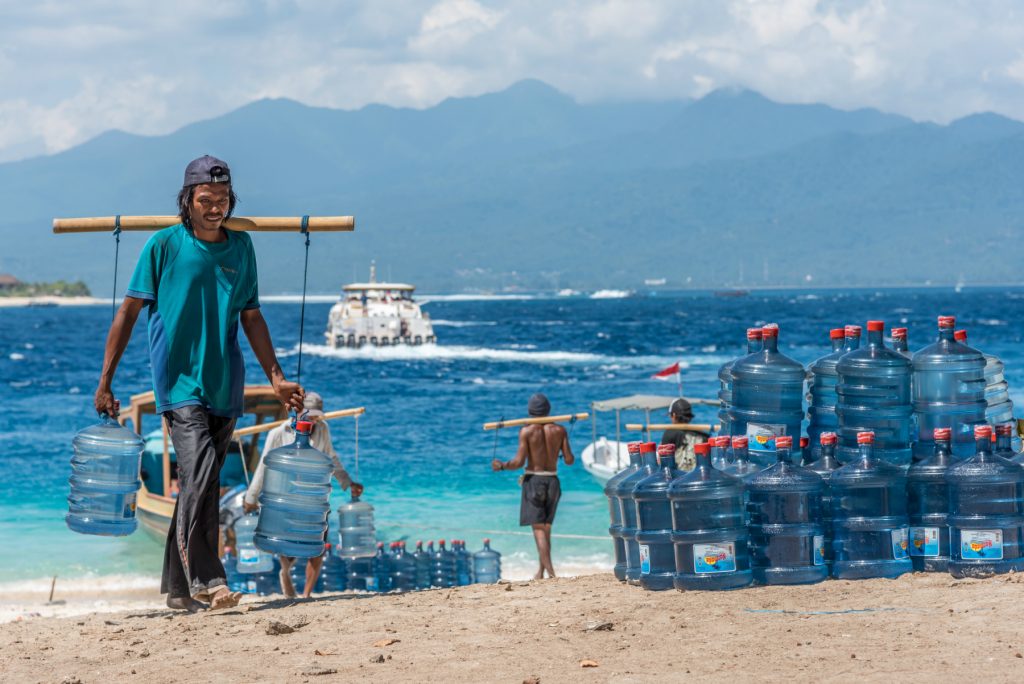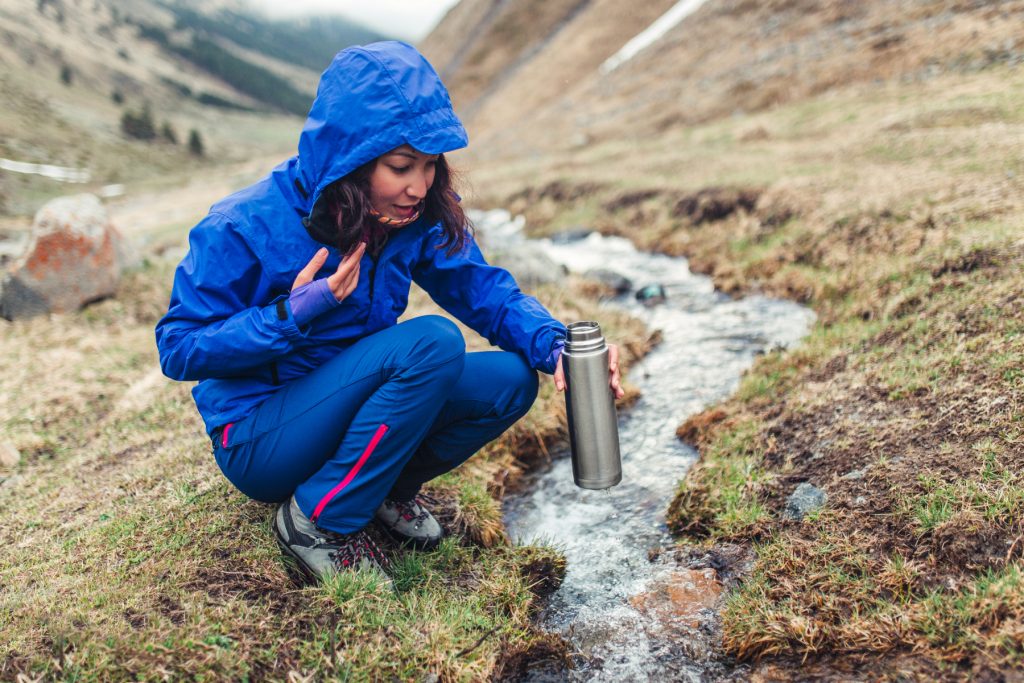The Adventure Travel Trade Association (ATTA) has actively pursued conservation-related issues for many years, but this year turned its attention specifically toward climate action, including creating a Climate Action Committee. With a more fervent commitment of demonstrating leadership in the area of climate advocacy, the association is keeping a close eye on newsworthy items related to climate awareness and change and exploring what these issues might mean for the commercial adventure travel industry.

A couple of the most noteworthy headlines from recent few weeks involve financial market leaders making significant commitments in support of climate awareness and slowing global warming through the reduction of carbon dioxide in the atmosphere:
- Michael Bloomberg, the three-term mayor of New York City, said he will meet a $4.5 million USD shortfall in funding to the United Nations caused by President Donald Trump’s decision to withdraw from the Paris climate agreement.
- Wells Fargo CEO Tim Sloan said the company will accelerate its commitment to tackle climate change with new plans to support low-carbon and conservation-related businesses. According to the Climate Action newsletter, Sloan said in a keynote conference speech in April that the bank is “committed to taking a leadership role in supporting the transition to a low-carbon economy and promoting environmental sustainability through our products and services, operations and culture, and philanthropy.” This new commitment follows Wells Fargo’s 2012 goal of investing $30 billion in clean technologies by 2020, a goal it met within three years.
- In January 2018, BlackRock founder and CEO, Laurence D. Fink, penned a letter telling companies they need to contribute to society in order to receive his firm’s support. “Society is demanding that companies, both public and private, serve a social purpose. To prosper over time, every company must not only deliver financial performance, but also show how it makes a positive contribution to society,” he wrote in the letter. Starting in 2017, the firm began taking action against Exxon by supporting a shareholder proposal enhancing the company’s disclosures on climate. Previously, Exxon had a policy that prevented BlackRock from fully understanding its long-term strategy and risk exposure.
Companies might take a cue from Natural Habitat Adventures, one business in the adventure community that has been committing resources to reduce carbon and plastics in its operations. In 2007, the company stated it wanted to become the world’s first carbon-neutral travel company. Inspired in 2011 by a pledge made by Grand Canyon National Park, Natural Habitat Adventures decided to eliminate plastic water bottles from its trips across the globe. With a mix of inbound and outbound operations in more than 40 countries, Ted Martens, vice president of marketing and sustainability at Natural Habitat Adventures, said, “Implementation was relatively easy in some destinations and very complex in others. Hurdles included sourcing bulk purified water, hotel and restaurant policy restrictions, and overcoming traveler safety perceptions.” Over a three-year period, the company was able to overcome these obstacles through a combination of education, training, pressure on the supply chain, and other creative solutions. In 2017 alone, Natural Habitat Adventures estimates its efforts resulted in the elimination of more than 145,000 plastic water bottles from its adventures, with a total of more than 700,000 plastic bottles eliminated since the inception of the program.

Another company focusing on carbon emissions reduction is SNP Natuurreizen, based in the Netherlands, which has joined forces with a group of 12 other Dutch companies to offset their carbon emissions directly and affordably. General director Gert Nieuwboer said SNP calculates the carbon footprint of the land arrangement (accommodation, local transfers, and excursions) for each of its trips using a tool called Carmacal and covers the cost of offsetting, which is not added into the travelers’ fare. For air travel, the offset costs are charged to the traveler directly, but these amounts vary between two and six euros per ticket, Nieuwboer said. Offsetting fees are spent on certified projects that reduce carbon dioxide emissions in other parts of the world — mostly in developing countries. “Incidentally, already 30 percent of SNP customers voluntarily compensated themselves for the CO2 emissions of their journey. With this new step we are reaching 100 percent,” Nieuwboer said.
Eric Balian of Terres d’Aventure said his company has been engaged in carbon neutral projects for more than 10 years. He observed that, since less than one percent of Terres d’Aventure guests make any voluntary contribution, it would be up to the company to bridge the gap. Balian’s company is an active member of the Livelihoods Carbon Fund, participating in project reviews and decisions elected by the fund for carbon offsetting. Although Terres d'Aventure has been offsetting 100 percent of its staff since 2008, it now will also offset 100 percent of the carbon emitted by its customers as well. “About eight years ago we put a plan in place to contribute one euro per passenger for short-haul travel and five euros per passenger for long-haul travel, offsetting about 10 percent of our guests' carbon footprint. Through this, we have raised €400,000 per year and look forward to contributing much more in the years to come,” Balian said.
For adventure companies, there is an opportunity to begin quantifiably tracking impacts and leveraging that progress to inspire and educate others to do the same. If you aspire to develop a more environmentally friendly adventure travel company, you can start today.
- Does your company have an environmental policy or sustainability goals? If so, share them with the world! Publish them on your website and tell potential customers what they are.
- Are you working with eco-friendly suppliers? When creating professional partnerships, ask about potential partners’ sustainability efforts.
- Have you joined any organizations or coalitions focused on environmental preservation? Being an ATTA member is a step in the right direction. Consider going even further by financially supporting programs around the world working directly with conservation and preservation efforts.
- Are you working in a geographical area where you’re seeing changes as a result of climate change? If so, think critically about what you can do to minimize your company’s environmental footprint and support conservation programs in the affected areas.
- Do you have initiatives that build consumer awareness and behavioral change in areas that will benefit carbon reduction and offsetting? If so, now might be the time to start formally tracking your progress.
This article is part of an Adventure Travel Trade Association (ATTA) initiative addressing important topics identified as critical to the protection and continued advancement of the adventure travel industry. Each initiative — eliminating plastics, women in leadership, climate action, and young leaders — has a dedicated team focused on building awareness of, advancing educational opportunities in, and creating a lasting impact on each of these areas within the adventure travel industry. We invite you to visit the ATTA’s initiatives page where you can access reports, read the latest news, participate in active projects, and join conversations within the membership community.
